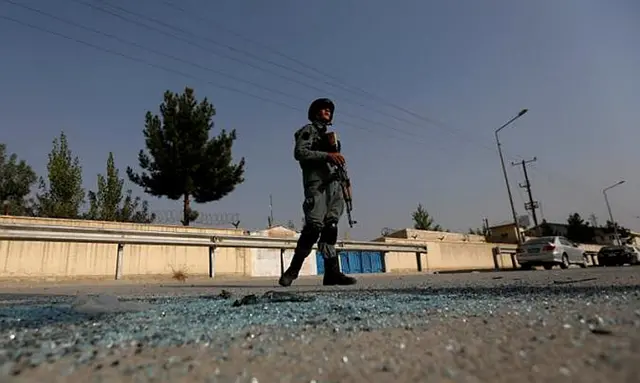As many as 16people were killed after militants stormed the American University of Afghanistan in Kabul, officials said Thursday (Aug 25), in a nearly 10-hour raid that prompted anguished pleas for help from trapped students.
“Sixteen people, including eight students, were killed and 53 others were wounded,” health ministry spokesman Waheed Majroh said. “Some of the wounded are in critical condition.” The interior ministry said the fatalities included policemen, a university guard and a guard from the neighbouring vocational school for the visually impaired.
Hundreds of trapped students were rescued during the overnight operation, many of whom tweeted desperate messages for help. Some used classroom furniture to barricade the doors while others made a mad scramble to escape through windows from high floors.
The attack began with a suicide car bombing at a university gate, which paved the way for two attackers to storm the compound at dusk, when the elite private university is usually packed with students.
“Students were pushing each other out of the classroom window,” Farzana, a young student who was grievously hurt while escaping, told AFP from her hospital bed.
As security forces patrolled the 5-acre campus on Thursday and university staff visited the wounded in hospital, students weighed up the risks of returning to their education.
"Now my parents say I should stop studying there if it reopens, but I want to continue, because is there another institution like it in the whole country?" said Farooq, an international relations student.
Opened in 2006 and partly funded by U.S. aid, the not-for-profit American University of Afghanistan (AUAF) had grown to accommodate 1,700 students, offering some of the country's most respected degrees craved by young people restless for opportunities.
Pupils range from poorer Afghans on scholarships to the sons and daughters of the country's elite.
The university also offers overseas exchange programs to the United States and Germany, a further incentive to those deciding whether to go back.
"When the university reopens, I will be the first to enter and continue my education. The terrorists can never stop us from learning," said Wahida Faizi.
A wounded Afghan man, who survived last night's attack at American University of Afghanistan, receives treatment at the Emergency Hospital in Kabul, Afghanistan August 25, 2016.REUTERS/Omar Sobhani
No Claim
There has been no claim of responsibility for the raid, which ended after security forces cleared buildings early on Thursday.
Islamist militants have increasingly targeted educational institutions in countries including neighboring Pakistan, in an effort to frighten the public and damage centers of learning they deem out of place in their vision of an Islamic society.
Taliban insurgents who control swathes of rural Afghanistan and want to topple the Western-backed government of President Ashraf Ghani also frequently attack places where foreigners live or gather, leaving the American University even more vulnerable.
Foreign Academics
Despite security concerns, the university's reputation and unique setting have continued to attract overseas teaching staff, even as the insurgency grew and foreigners were targeted.
Some 60 percent of professors are foreign and the wider academic staff are drawn from 16 countries including Afghanistan, said Shamroz Khan Masjidi, a university spokesman.
Ten academics joined from overseas shortly before the start of classes in mid-August.
Security had been beefed up since 2014, when a wave of bombings in Kabul targeting foreign guesthouses, restaurants and clubs drove many expatriates to leave the city.
At the university, accommodation for foreign faculty members was built on site a few years ago, overseen by a watchtower and armed guards, and expatriates were chaperoned by an Afghan if they left the campus compound.
Still, security would have to be tightened further.
"Extra and upgraded measures have to be taken," said Masjidi, declining to specify what they would be.
Edrees Nawabi, another student at the university, said he feared that foreign teachers would be less willing to come to Kabul after the attack.
But Masjidi sounded a note of defiance.
"The attack will not deter us from our determination to provide education to Afghan students, and AUAF will rise again, even stronger."
(APD)
 简体中文
简体中文

